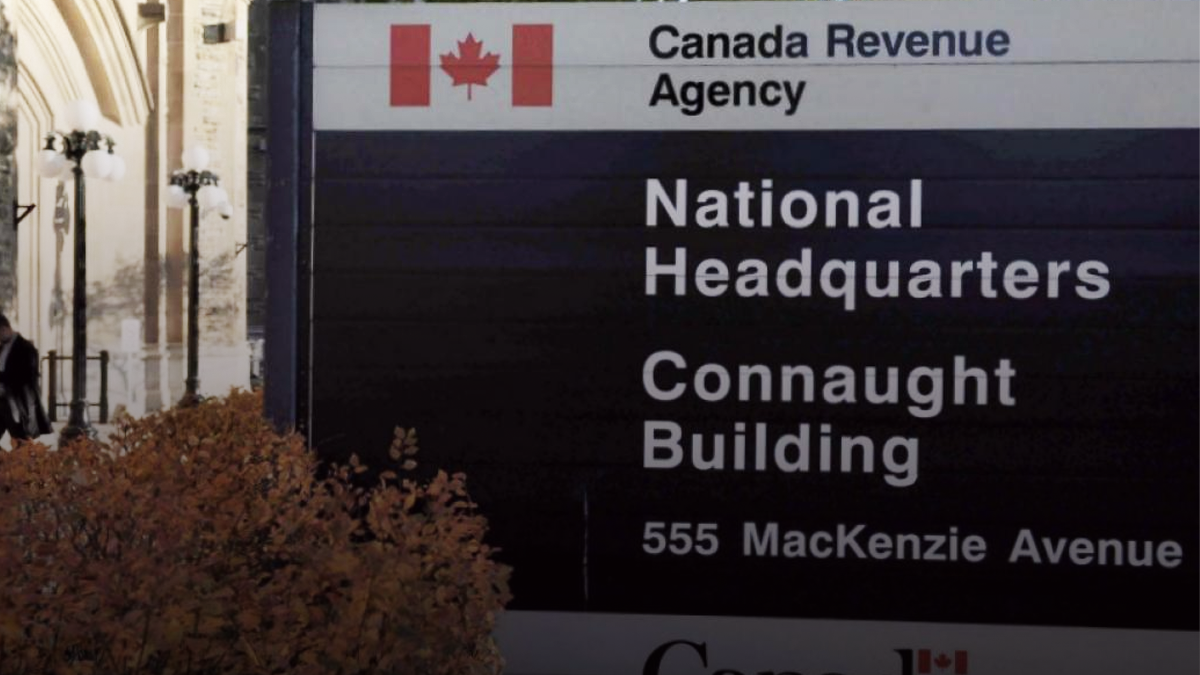Police in Edmonton have seized a cache of five dozen weapons while dismantling homeless encampments.
The Edmonton Police Service announced Tuesday the seizure of 60 weapons from Dawson Park, including 34 knives, 11 machetes, and 10 samurai swords along with pellet guns, axes, brass knuckles, and a collapsible baton.
The police used the seizure to underscore the escalating risks associated with the ballooning camps, which law enforcement have started to break down in the last week.
In addition to weapons, police officers have said that the camps are also dangerous due to fires, propane tanks, needles, and toxic drugs.
The photos of the weapons were shared to the Edmonton Police Services’ social media accounts two hours before officers were set to clear the eighth encampment deemed high risk by the city and the police. An injunction had previously stalled the encampment removals
Last month’s court order specified conditions for clearing eight encampments flagged as safety hazards, like ensuring adequate shelter space and giving a 48-hour notice to residents. Social agencies are also to be provided notice at “earliest convenience”.
The City of Edmonton confirmed with the government of Alberta that there was sufficient shelter space before the closure planned for Tuesday. However, police say the requirement for advance notice has increased risks.
“We’ve seen booby traps in some encampments, and those pose real risks to our officers, to the cleanup crew, and to the general public,” Deputy Chief Warren Driechel said, according to CTV News.
Adding to the danger of the encampments, low-level gangsters have been living in the encampments, police said.
“They’re not overly sophisticated organizations. But what they make up for is the level of violence that they use,” said Driechel. “Not only do they victimize people within encampments, the crime that’s occurring on the street, the drug dealing, they turn on each other quite quickly. They are extremely ruthless.”
The dismantling of these encampments has not been without resistance. One instance of opposition occurred at Tuesday’s encampment sweep. This event escalated when a crowd that had gathered throughout the day reacted to the arrest of a man by EPS officers. The man was arrested for assaulting a peace officer, and the charges are pending.
The police action, backed by the city, aims to dismantle these encampments deemed high-risk due to various factors, including fire risks, drug use, gang violence, and proximity to sensitive areas like schools and playgrounds.
Currently, 750 more camps in the city are classified as high-risk, and EPS plans to continue monitoring and removing them.
On Tuesday, some residents of the encampment refused to leave.
“I’m making my stand! What are we doing? We’re standing up for our rights!” yelled Roy Cardinal, who only recently became homeless.
Cardinal eventually allowed the police to dismantle empty tents, and an Edmonton city bus was deployed to provide warmth for the people present.
The city says the encampment was “cleaned” but not cleared.
“Vacant structures and excessive debris were removed so that some of the onsite health and safety risks were reduced. No occupants left the site today,” said the city in a statement.
“While the planned closure was in full compliance with the city’s obligations under the interim order, including providing advanced notice to social agencies, the city adjusted its approach given the number of third parties on site.”
The risks of injury and death due to fire remain extremely high, said the city. Edmonton Fire Rescue Services have responded to 135 fires in encampments this year, resulting in 22 injuries and three deaths. In the last week, two fires have led to injuries, and one propane tank has exploded.
According to Homeward Trust Edmonton, there are 2,987 homeless people in the city as of Jan. 6, 2024. Of those, 1,714 are provisionally accommodated, 755 are unsheltered, and 518 are staying in overnight shelters.
Between Jan. 1 and Oct. 22 last year, 13,683 complaints were registered from members of the public regarding homeless encampments.
In collaboration with the Alberta government and EPS, the city continues to assess and address the risks at these sites, complying with court orders and advocating for resources to tackle the underlying causes of homelessness.



























Freedom Convoy trial back on hold after lasting just one day in 2024
After returning for just one day in the new year, a judge has halted the trial of Freedom Convoy leaders Tamara Lich and Chris Barber.
The trial has already exceeded its originally planned duration by months, leading to the need for rescheduling. The court must now determine a future date for the resumption of the trial.
Initially slated to conclude within 16 days, the trial, which began on September 5, 2023, has faced numerous delays. Contributing to the delays was the extensive time the Crown required to call up witnesses and the defence’s challenge to a $290 million class-action lawsuit filed by Ottawa residents against the convoy leaders, which their lawyers said was designed to “silence” the leaders’ right to free expression.
The most recent session, the sole one scheduled for 2024, focused on the contentious debate about the admissibility of transcripts from a February 2022 injunction hearing when the protest was still ongoing.
“We heard submissions from both the Crown and the defence regarding the admissibility of the February 2022 injunction hearing transcripts,” wrote The Democracy Fund, responsible for crowdfunding Lich’s legal expenses, in their Day 34 trial update.
According to the legal group, the defence counsel tried to have the transcripts admitted to the record, which was contested by the Crown.
Diane Magas, the defence lawyer for Chris Barber, shared parts from both injunction hearings in court arguing they should be part of the official record. She highlighted the need to understand the context behind the injunction judge’s comments, explaining his acceptance or rejection of certain terms.
Magas emphasized that the hearings’ transcripts showed if someone broke the injunction, it would be treated as a civil issue, not a criminal one. She also mentioned the judge’s decision allowing people in Ottawa to keep protesting even after the injunction was issued.
Lawrence Greenspon, Lich’s lawyer, focused on earlier submissions made during the 2022 injunction hearing, highlighting that it was solely about honking and noise.
“Greenspon highlighted the injunction judge’s remark that there was ‘no evidence of any breach,’ emphasizing the credibility of a superior court judge who heard experienced counsel’s submissions,” said The Democracy Fund
After hearing the submissions made by the defence counsel, the Crown reversed its stance, agreeing to provide the full transcript to Justice Heather Perkins-McVey for context.
The Crown emphasized the injunction judge’s statement that the sole issue before him was honking horns, providing context to Greenspon’s “no evidence of breach” quote.
According to the account of courtroom proceedings, the Crown suggested that the injunction judge referred only to a lack of evidence regarding honking horns, not a lack of evidence of any wrongdoing.
Counsel will meet next week with trial coordinators to schedule day 35 of the proceedings.
The crown has remained determined to prove that Lich and Barber influenced protestors’ actions through their words, suggesting a co-conspiracy. The defence has dismissed this accusation as unsubstantial.
Lich and Barber are facing several charges related to the 2022 protests, including mischief, counselling mischief, counselling intimidation, and obstructing police for taking part in and organizing the anti-mandate Freedom Convoy.
Lich was jailed for weeks while awaiting bail.